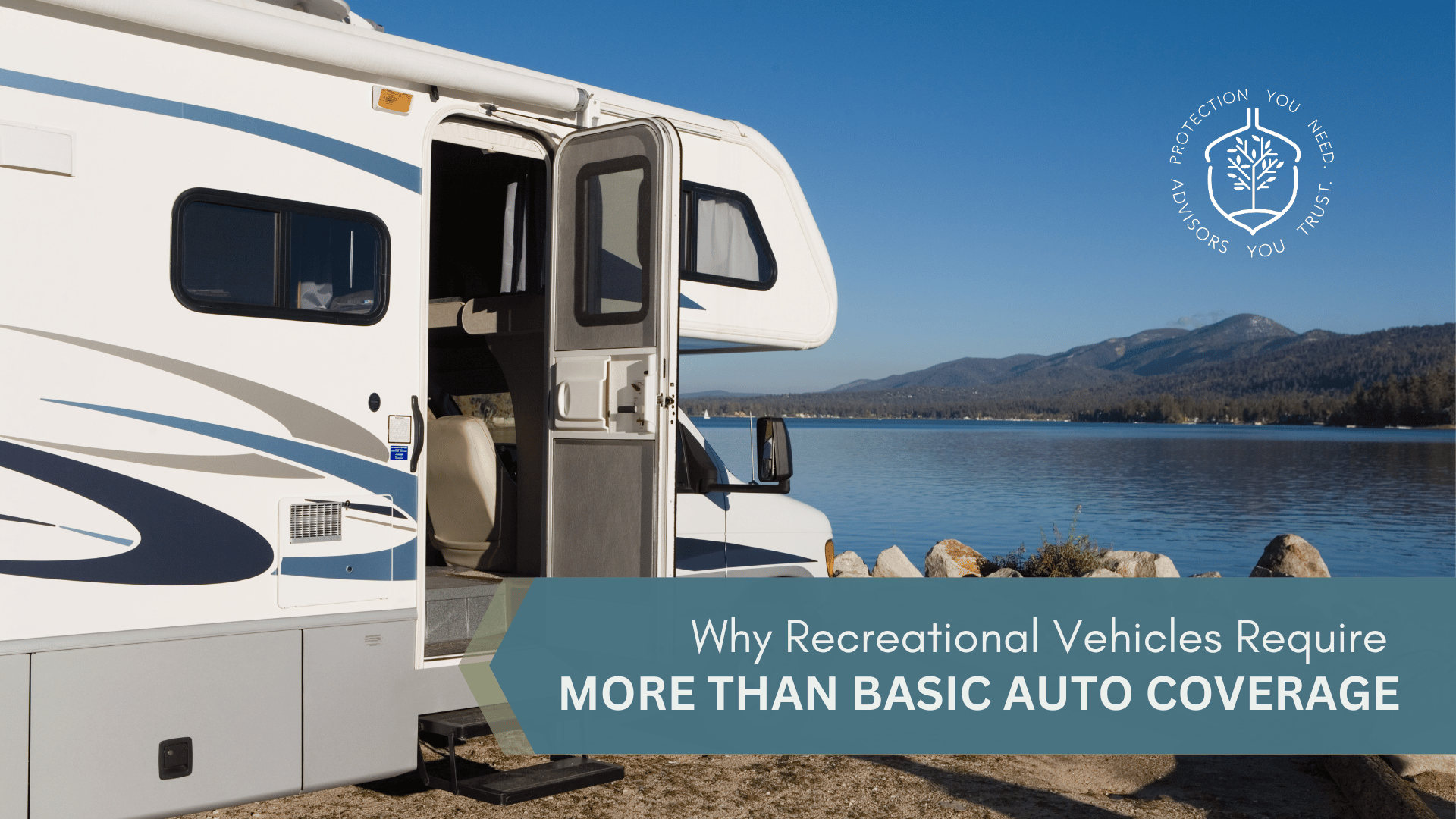Many recreational vehicle (RV) owners in Louisiana think their regular car insurance is enough. But that’s not quite right. RVs need special insurance.
The type of insurance you need depends on your RV. Motorhomes, which are RVs you can drive, need their own insurance policy.
RVs you tow are a bit different; they might not need a whole new policy, but they do need extra coverage added to your car insurance.
To stay safe in your RV, you need to know Louisiana’s rules for recreational vehicle insurance. Understanding the right coverage helps protect you and your RV, whether you’re camping or driving down the highway. This way, you can enjoy your trips without worrying about insurance gaps.
Common Types of Recreational Vehicles
Louisiana’s roads and campgrounds are home to a variety of RVs. Here’s a quick guide to the most common types you’ll see:
- Class A Motorhomes: Built on a commercial truck chassis or a specially designed motor vehicle chassis, they’re essentially buses converted into mobile homes. They offer luxurious amenities, such as a large bathroom and a full kitchen, perfect for those who want all the comforts of home on the road.
- Class B Motorhomes: Also known as campervans, these are the smallest motorized RVs. Built on a van chassis, they’re typically under 21 feet long.
- Class C Motorhomes: These mid-size RVs offer a balance between the spaciousness of Class A and the maneuverability of Class B. Built on a truck chassis, they’re usually 20-31 feet long. A typical distinctive feature is the over-cab area, which often serves as an additional space.
- Cargo & Horse Trailers: Towed behind an SUV or truck, they’re used to transport everything from ATVs and motorcycles to horses and livestock. Sizes and features vary widely depending on their intended use.
- Conventional Trailers: These towable RVs are a popular choice for campers. They range from small pop-up campers to large travel trailers, typically towed by an SUV or pickup truck.
Louisiana’s Minimum RV Insurance Requirements
By law, motorhomes in Louisiana must have their own insurance policy. The state-mandated minimums are:
- $15,000 for bodily injury per person
- $30,000 for total bodily injury per accident
- $25,000 for property damage per accident
These requirements match the minimums for regular vehicles, but to truly protect your investment, consider these additional coverages:
- Collision Insurance. This covers repairs to your RV if you’re in an accident.
- Comprehensive Insurance. Protects against non-collision incidents like theft, vandalism, weather damage, or animal collisions.
- Roadside Assistance. Provides help with breakdowns, towing, and other emergencies while you’re on the road.
- Replacement Cost Coverage. Helps replace personal belongings inside your RV if they’re damaged or stolen.
- Total Loss Replacement Coverage. If your RV is totaled, this coverage helps you purchase a new, comparable model.
Living Full-Time in Your RV? Here’s What You Need to Know
If your RV is your home sweet home, regular recreational vehicle insurance might not cut it. Full-timers need a bit more protection. Let’s break down what full-time RV coverage typically includes:
Personal Liability
Personal liability can help if someone gets hurt while visiting your RV or if you accidentally damage someone else’s property while parked.
Medical Payments
If someone takes a tumble in your RV or trips on your outdoor rug, medical payment coverage can help with their doctor bills.
Loss Assessment Coverage
Many full-timers park their RVs in campgrounds or RV communities. If the community faces damages and everyone needs to chip in for repairs, loss assessment coverage can help cover your share.
Choosing the Right RV Insurance
When shopping for recreational vehicle insurance in Louisiana, several factors come into play. Understanding these can help you get the coverage you need at a fair price. Let’s break it down:
Factors Affecting Your RV Insurance Rates
- Type and Model of RV
- How You Use Your RV
- Location
- Claim History
- Driving Record
Benefits of Working with a Local Insurance Agency
- Local Expertise. Louisiana has specific RV insurance requirements. Local agents are familiar with state laws and can ensure you’re properly covered.
- Personalized Service. Face-to-face meetings allow for more detailed discussions about your specific needs and concerns.
- Bundle Opportunities. Local agencies often represent multiple insurance companies, offering bundling discounts with your home or auto policies.
- Claims Assistance. When you need to file a claim, having a local agent can simplify the process and provide personalized support.
- Ongoing Support. As your RV usage or needs change, a local agent can easily adjust your coverage.
Remember, the cheapest recreational vehicle insurance isn’t always the best. Focus on finding a policy that provides adequate protection for your specific RV and usage. A local agent can help you navigate these choices, ensuring you have the right coverage to enjoy your RV adventures worry-free.
If you’re not sure your RV is properly protected, it’s time for a review. TSL Insurance Group is here to help, with offices in Lafayette, Baton Rouge, Franklin, Abbeville, and Lutcher. Fill out the online form below or call us. We’ll chat about your RV adventures and make sure you’ve got the right coverage to keep those good times rolling.
Source:


Recent Comments